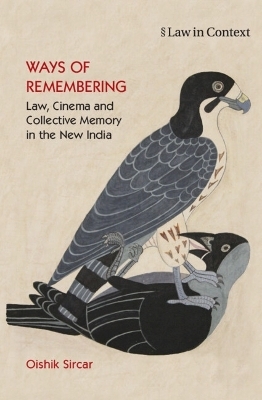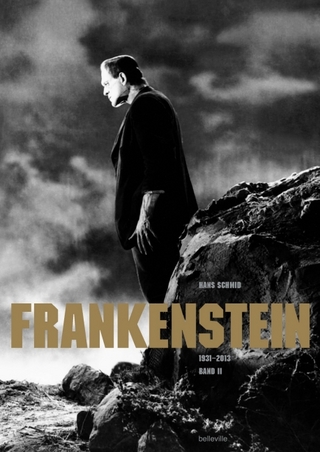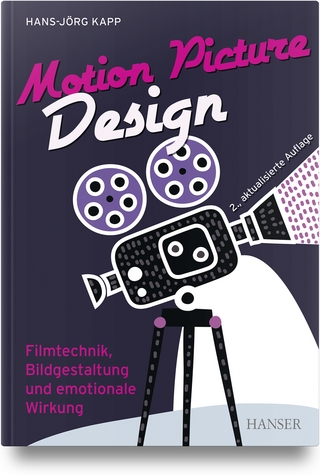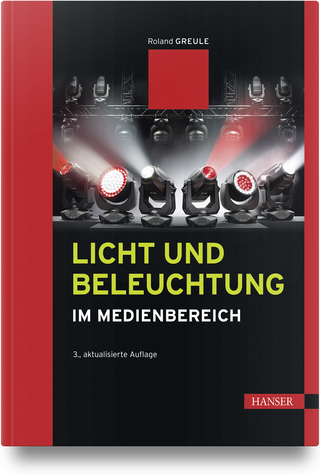
Ways of Remembering: Volume 1
Law, Cinema and Collective Memory in the New India
Seiten
2024
Cambridge University Press (Verlag)
978-1-316-51281-4 (ISBN)
Cambridge University Press (Verlag)
978-1-316-51281-4 (ISBN)
It is a jurisprudential investigation into how a shared narrative of law and cinema produces ways of collectively remembering mass violence in postcolonial India. It will appeal to readers in India and common law jurisdictions interested in the areas of law and cinema and law and violence.
Ways of Remembering tells a story about the relationship between secular law and religious violence by studying the memorialisation of the 2002 Gujarat pogrom—postcolonial India's most litigated and mediatized event of anti-Muslim mass violence. By reading judgments and films on the pogrom through a novel interpretive framework, the book argues that the shared narrative of law and cinema engenders ways of remembering the pogrom in which the rationality of secular law offers a resolution to the irrationality of religious violence. In the public's collective memory, the force of this rationality simultaneously condemns and normalises violence against Muslims while exonerating secular law from its role in enabling the pogrom, thus keeping the violent (legal) order against India's Muslim citizens intact. The book contends that in foregrounding law's aesthetic dimensions we see the discursive ways in which secular law organizes violence and presents itself as the panacea for that very violence.
Ways of Remembering tells a story about the relationship between secular law and religious violence by studying the memorialisation of the 2002 Gujarat pogrom—postcolonial India's most litigated and mediatized event of anti-Muslim mass violence. By reading judgments and films on the pogrom through a novel interpretive framework, the book argues that the shared narrative of law and cinema engenders ways of remembering the pogrom in which the rationality of secular law offers a resolution to the irrationality of religious violence. In the public's collective memory, the force of this rationality simultaneously condemns and normalises violence against Muslims while exonerating secular law from its role in enabling the pogrom, thus keeping the violent (legal) order against India's Muslim citizens intact. The book contends that in foregrounding law's aesthetic dimensions we see the discursive ways in which secular law organizes violence and presents itself as the panacea for that very violence.
Oishik Sircar is Professor of Law, Jindal Global Law School, and Associate Member, Institute for International Law and the Humanities, Melbourne Law School. He is the author of Violent Modernities: Cultural Lives of Law in the New India (2021) and co-director of the documentary film We Are Foot Soldiers (2011).
List of Figures; Acknowledgements; List of Abbreviations; 1. Law and the Aesthetics of Atrocity; 2. A Jurisprudential-Aesthetic Approach; 3. The Best Bakery Judgments: Aesthetics of Judicial Memory; 4. Bollywood's Law: Cinematic Justice and Collective Memory; 5. 'As They Ought'; Notes; Glossary; Bibliography; Index.
| Erscheinungsdatum | 10.08.2024 |
|---|---|
| Reihe/Serie | Law in Context |
| Zusatzinfo | Worked examples or Exercises |
| Verlagsort | Cambridge |
| Sprache | englisch |
| Maße | 152 x 229 mm |
| Gewicht | 633 g |
| Themenwelt | Kunst / Musik / Theater ► Film / TV |
| Recht / Steuern ► Allgemeines / Lexika | |
| Recht / Steuern ► EU / Internationales Recht | |
| Sozialwissenschaften | |
| ISBN-10 | 1-316-51281-9 / 1316512819 |
| ISBN-13 | 978-1-316-51281-4 / 9781316512814 |
| Zustand | Neuware |
| Informationen gemäß Produktsicherheitsverordnung (GPSR) | |
| Haben Sie eine Frage zum Produkt? |
Mehr entdecken
aus dem Bereich
aus dem Bereich
Filmtechnik, Bildgestaltung und emotionale Wirkung
Buch | Hardcover (2024)
Carl Hanser (Verlag)
44,99 €


